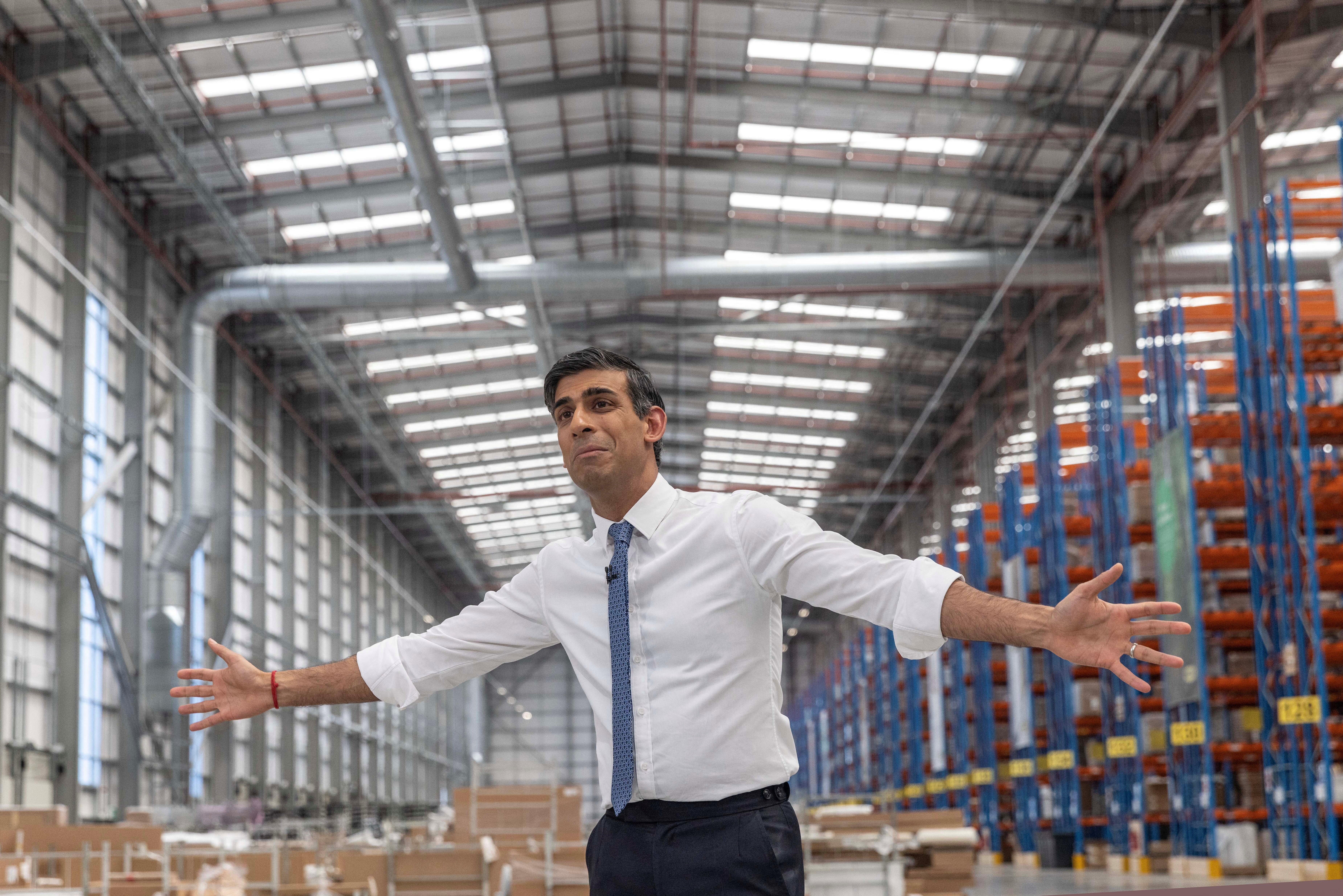Who is really in charge of inflation – Rishi Sunak, or the Bank of England?
Why did politicians give up control of interest rates 26 years ago, asks John Rentoul


Since 1997, it has been the Bank of England’s job to set interest rates. Before then, the decision was taken by the chancellor of the exchequer, but over time the consensus grew that this was one of the causes of Britain’s chronic problem of inflation.
Chancellors would be tempted to put winning votes above bearing down on inflation, the argument went, and so would shy away from the tough decisions to put interest rates up when the economy was overheating and inflation starting to rise.
The rival argument was that interest rates are so important that they should be set by elected politicians on behalf of the people. Margaret Thatcher stuck to that view, but her chancellor Nigel Lawson was convinced by the time he left that it would be better if rates were set by independent technocrats.
So Gordon Brown and Tony Blair surprised and delighted the City by removing themselves from interest-rate decisions within days of entering government. They handed over the power to set interest rates to the Monetary Policy Committee (MPC) of the Bank of England, a nine-member group of economists, five from the Bank and four outsiders.
The role of elected governments was to set the objective: in New Labour’s case it was to keep inflation at or around two per cent, a target that has endured even if it has recently been mocked by actual inflation. The MPC’s role is to raise interest rates if it thinks there are inflationary pressures in the economy that need to be suppressed, and to lower them if it thinks that the risks of recession are greater.
It is a difficult judgement, which may be one reason that Brown and Blair were happy to offload it. Interest rates are a blunt instrument, while the causes of inflation are complex. Nor is the decision about interest rates, whether it is taken by the MPC or by politicians, entirely independent f market forces. As has been the case recently, beyond a certain point the MPC cannot resist the pressure from the buyers and sellers of government debt and of currencies.
In addition, the separation between the government and the MPC is never as complete in practice as it is in theory. Bank officials work closely with the Treasury in their discussions about interest-rate decisions, and ultimately they are appointed by the government.
The convention has also been maintained that the two sides don’t criticise each other, which is why it was unusual that there was some public friction between the Bank and the Liz Truss government – the Bank made its view clear that it was Kwasi Kwarteng’s mini-budget that caused a spike in interest rates in the gilts market. Equally, it was unusual that Mark Harper, the transport secretary, this week accused the Bank of acting too slowly on inflation last year – he was trying to praise the prime minister for having warned of the risks of inflation earlier than most, but his words will have gone down badly in Threadneedle Street.
Furthermore, interest rates are not the only way in which governments used to influence inflation. Decisions about taxes such as VAT and fuel and alcohol duties have a direct effect on prices, as did price controls in the old days and energy bill subsidies now.
That is why Rishi Sunak was not talking complete rubbish when he made halving inflation the first of his five promises for this year. One reason inflation is not currently even higher than it is is that the government has put large sums of public money into the energy price guarantee.
But the prime minister’s promise was curious all the same, because those energy price subsidies are not going to have any effect on prices this year. Sunak’s promise depended almost wholly on the expectation that the big rises in energy prices last year would be dropping out of the Consumer Prices Index by the end of this year. He has been caught out by a secondary wave of inflation that is still raising core prices.
There is not much that the government can do about that, except hope that the independent Bank of England makes the right decisions about interest rates that will, eventually, squeeze inflation out of the system.



Join our commenting forum
Join thought-provoking conversations, follow other Independent readers and see their replies
Comments